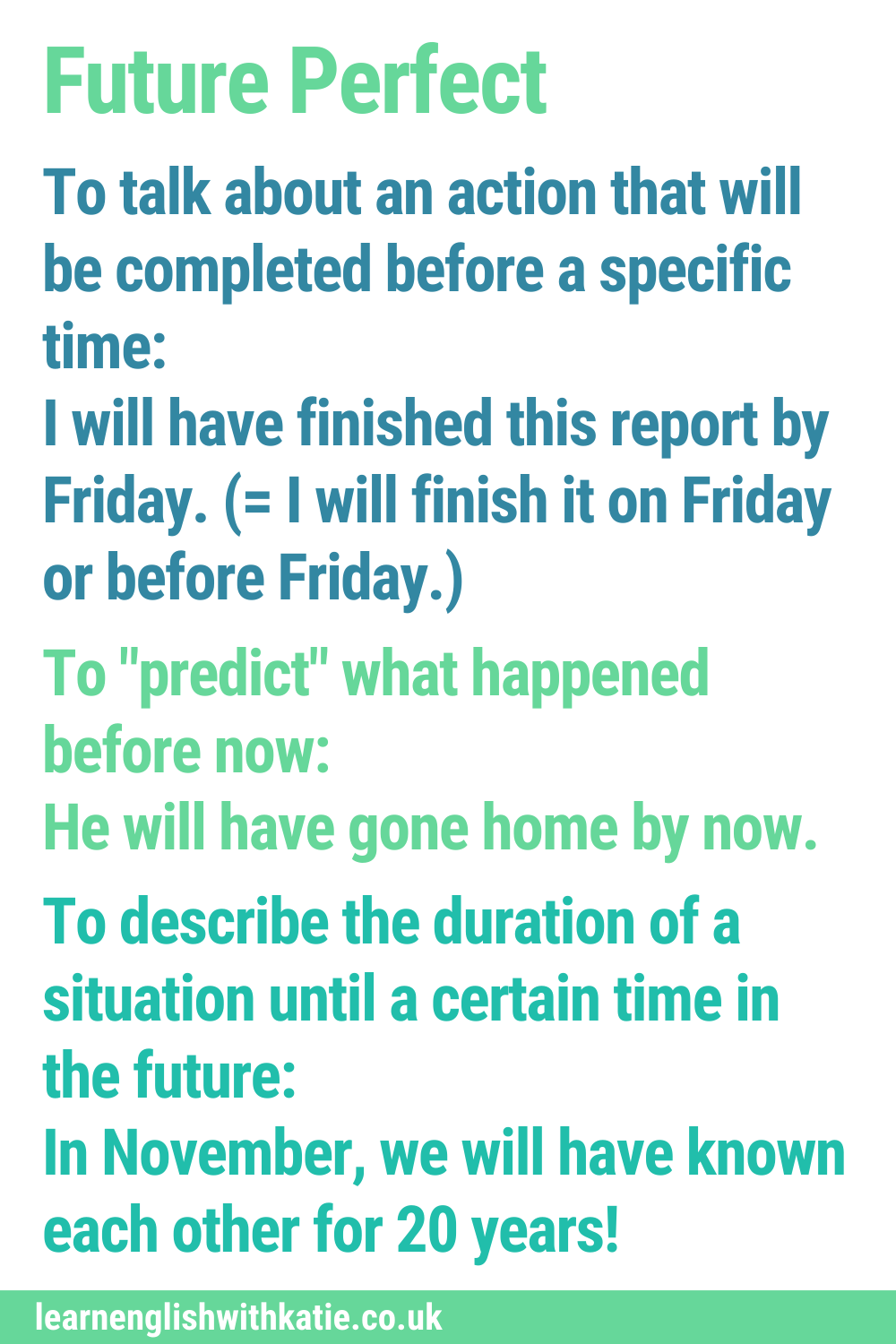|
This is almost the end of my series about verb tenses in English. You can click here to see all the other posts in the series, but for now, let's have a look at the future perfect! This tense is mostly used to imagine a future moment and then look back to an earlier time. Formation future perfect = will + have + verb 3 (past participle) Positive: Be: I / you / he / she / it / we / they will have been (I'll / you'll / he'll / she'll / it'll / we'll / they'll have been) Work: I / you / he / she / it / we / they will have worked Take: I / you / he / she / it / we / they will have taken Negative: Be: I / you / he / she / it / we / they will not have been (I / you / he / she / it / we / they won’t have been) Work: I / you / he / she / it / we / they will not have worked Take: I / you / he / she / it / we / they will not have taken Questions: Be: Will I / you / he / she / it / we / they have been? Work: Will I / you / he / she / it / we / they have worked? Take: Will I / you / he / she / it / we / they have taken? Uses 1. To talk about an action that will be completed before a specific time: I will have finished this report by Friday. (= I will finish it on Friday or before Friday.) See you tomorrow. You will probably have gone to bed by the time I get home tonight. 2. To "predict" what happened before now: He won't be in the office. He will have gone home by now. The film will have started already! We've missed the beginning! 3. To describe the duration of a situation until a certain time in the future: In November, we will have known each other for 20 years! By 6 o'clock, I'll have been here for 12 hours! (This is only for non-action verbs.) Would you like free lessons and tips for learning English sent straight to your email inbox? Click the button below and sign up:
2 Comments
Namrod
14/4/2023 09:44:01 pm
You said there is no future tense so where you bring future perfect ?
Reply
Katie
3/5/2023 03:50:22 pm
Technically, "perfect" is an aspect and not a tense. Tenses are about changing the ending of the verb, like -ed for the past simple. We don't have a future tense in that sense. But teachers talk about the future perfect tense etc all the time!
Reply
Your comment will be posted after it is approved.
Leave a Reply. |
About the blogFollow the blog for mini lessons and tips on how to improve your English. Categories
All
Archives
July 2024
|

 RSS Feed
RSS Feed
